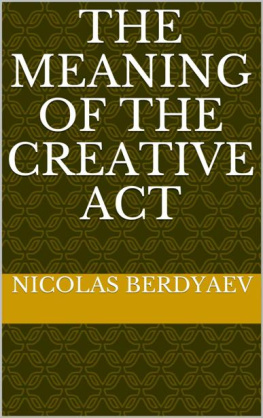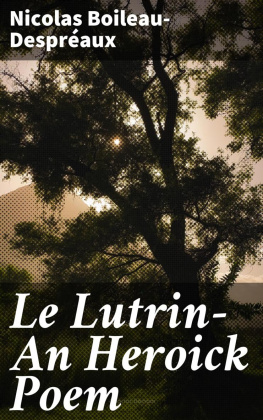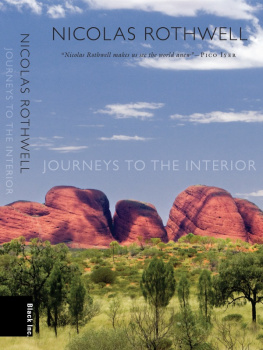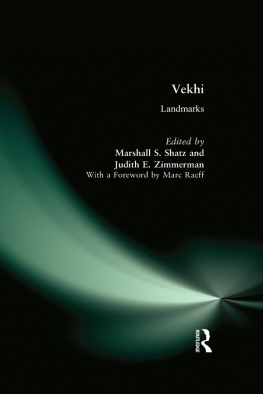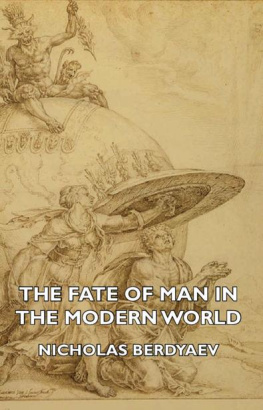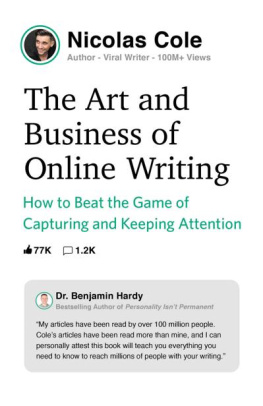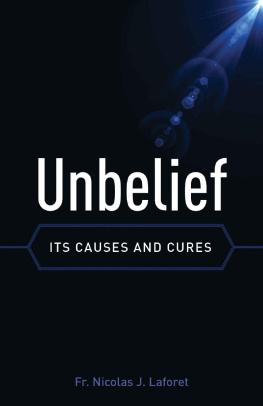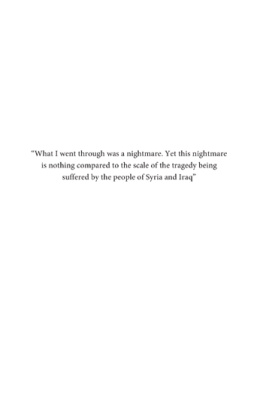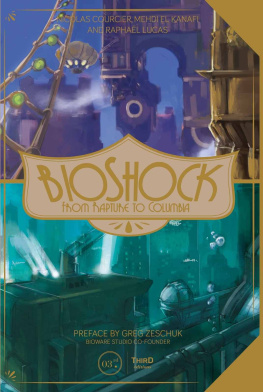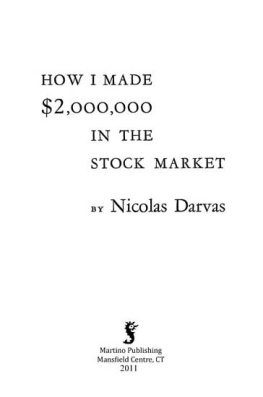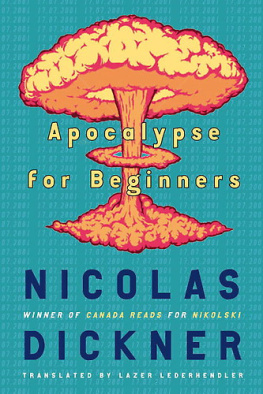Nicolas Berdyaev - THE MEANING OF THE CREATIVE ACT
Here you can read online Nicolas Berdyaev - THE MEANING OF THE CREATIVE ACT full text of the book (entire story) in english for free. Download pdf and epub, get meaning, cover and reviews about this ebook. year: 2017, genre: Science. Description of the work, (preface) as well as reviews are available. Best literature library LitArk.com created for fans of good reading and offers a wide selection of genres:
Romance novel
Science fiction
Adventure
Detective
Science
History
Home and family
Prose
Art
Politics
Computer
Non-fiction
Religion
Business
Children
Humor
Choose a favorite category and find really read worthwhile books. Enjoy immersion in the world of imagination, feel the emotions of the characters or learn something new for yourself, make an fascinating discovery.
- Book:THE MEANING OF THE CREATIVE ACT
- Author:
- Genre:
- Year:2017
- Rating:5 / 5
- Favourites:Add to favourites
- Your mark:
- 100
- 1
- 2
- 3
- 4
- 5
THE MEANING OF THE CREATIVE ACT: summary, description and annotation
We offer to read an annotation, description, summary or preface (depends on what the author of the book "THE MEANING OF THE CREATIVE ACT" wrote himself). If you haven't found the necessary information about the book — write in the comments, we will try to find it.
THE MEANING OF THE CREATIVE ACT — read online for free the complete book (whole text) full work
Below is the text of the book, divided by pages. System saving the place of the last page read, allows you to conveniently read the book "THE MEANING OF THE CREATIVE ACT" online for free, without having to search again every time where you left off. Put a bookmark, and you can go to the page where you finished reading at any time.
Font size:
Interval:
Bookmark:
A UTHOR'S P REFACE MY BOOK, The Meaning of the Creative Act, was written fifteen years ago. Since then mighty catastrophes have broken over Russia and the world. A new epoch in history has begun. The bases of my thinking remain unaltered. In my book I gave warning that the old world was going to pieces. But now the definiteness of my book appears to me as too optimistic. My faith in the imminent dawn of a creative religious epoch was too great. The book was written in one single movement, and it reflects the Sturm und Drang period of my life. To-day I am inclined to greater pessimism, and this is expressed in my The Meaning of History. But now as then, I still believe that God calls men to creative activity and to a creative answer to His love. Our creativeness should be the expression of our love toward God. But the crisis through which humanity is passing, which is expressed first of all in the bankruptcy of humanism, to-day seems to me more tragic, and offers no hope for the possibility of an immediate move into religious creativity. We shall have to pass through a period of darkness before the new light beams out. The world must look forward to a period of barbarization. Man is a creator not only in the name of God but in the name of the devil as well. This complicates the problem of creativity. But we must not be led astray into reaction against the creative spirit in general, by the power of Satanic creativity in the world of to-day. The Christian renaissance can be only a creative renaissance. Creativeness neither destroys nor diminishes the eternal truth of salvation: it merely reveals the other side of Christianity; it enlarges the Christian truth.
N . B ERDYAEV,
P ARIS. March, 1926.Ich weiss, dass ohne mich Gott nicht ein Nu kann leben Werd ich zu nicht, er muss von Not den Geist aufgeben.
ANGELUS SILESIUS
Introduction
THE HUMAN SPIRIT is in prison. Prison is what I call this world, the given world of necessity. This world is not the cosmos; it is a non-cosmic condition of divisions and enmity, the atomization and falling apart of the living monads of the cosmic hierarchy. And the true way is that of spiritual liberation from the world, the liberation of mans spirit from its bondage to necessity. The true way is not a movement to right or left in the plane of the world, but rather movement upward and downward on lines of the ultra-worldly, movement in spirit and not in the world. Freedom from the reactions of the world and from opportunistic adaptations to it is a great achievement of the spirit. This is a way of great spiritual contemplation, spiritual collectedness and concentration. The cosmos is true being, but the given world is a phantom and so is the necessity of the given world. This phantom world is bom of our sin. The teachers of the Church identified the world with evil passions. Mans spiritual captivity to the world is his fault, his sin, his fall. Liberation from the world is liberation from sin, the redemption of faults committed, the uprising of the fallen spirit. We are not of this world and should not love the world and that which is in the world. But the very doctrine of sin was born of slavery to illusory necessity. They tell us: You are a sinful, fallen being, and therefore do not dare to enter upon the way of liberation from the world, on the way of the creative life of the spirit; bear your burden of meek acceptance of the results of sin. And the spirit of man remains shackled in a circle with no way out. For original sin is slavery, bondage of the spirit, subjection to diabolic necessity, the incapacity to affirm oneself as a free creative agent; man loses himself by his assertion in the necessity of the world and not in the freedom of God. The way of liberation from the world for the creation of a new life is at the same time the way of liberation from sin, the overcoming of evil, the gathering of spiritual forces for life which is divine. Slavery to the given world, to necessity, is not only bondage but it is legitimizing and confirming the hated and divided non-cosmic condition of the world. Freedom is love. Slavery is hatred. But the escape from slavery into freedom, from the hatred of the world into cosmic love, is the way of victory over sin, over our lower nature. And we may not be refused entrance into this way on the ground that human nature is sinful and sunken in a lower sphere. It is a great falsehood, a terrible mistake of religious and moral judgment, to leave man in the lower depths of the world, because he must be obedient to the results of his sin. On the soil of such judgment there grows a shameful indifference to good and evil, the refusal of manful resistance to wrong. The depressive concentration on mans own sinfulness gives birth to double thinking: the constant danger of confusing God with the devil, Christ with Antichrist This fallen state of the spirit, shamefully indifferent to good and evil, has now gone to the length of a mystic fascination with passivity and humility, to play with double-thinking. The fallen soul likes to flirt with Lucifer, likes not knowing which God she serves, enjoys feeling terror and danger everywhere. This fallen state, this palsy and cleavage of mans spirit, is an indirect result of the Christian doctrines of humility and obedienceit is a degeneration of these doctrines. Over against this decadent doubling of thought and this palsied indifference to good and evil we must firmly set the manful liberation of the spirit and creative action. But this requires a concentrated resolution to be free from the false and illusory accretions of culture and its scoriae , free from this refined captivity to the world. The creative act is always liberation and conquest. It is an experience of power. The revelation of this creative act is not a cry of pain, it is neither passive suffering nor lyric effusion. Terror, pain, palsy, destruction, must be conquered by creativity. In essence, creativity is a way out, an exodus; it is victory. The sacrifice of creativeness is neither terror nor destruction. The willingness to sacrifice is itself active rather than passive. Personal tragedy or crisis or fate is experienced as the tragedy or crisis or fate of the world. Concentration on ones own personal salvation and fear of ones own personal loss is monstrously selfish. Concentration on the crisis of ones own creativeness and the terror of ones own powerlessness is monstrously prideful. Egoistic and self-conceited concentration on oneself indicates a morbid separation between man and the world. Man was made by the Creator with qualities of genius (not always genius in the full sense of the word), and these qualities must express themselves in creative activity, must overcome everything personally-egoistic and personally self-conceited, conquer all fear of ones own loss, all concern for what others may think. In its ultimate base on the Absolute Man-Christ, human nature has already become the nature of the new Adam and is united with divine natureit no longer has a right to feel itself cast-off and lonely. This sense of isolation and depression is itself a sin against mans divine calling, against the call of God, Gods need of man. Only the man who lives the whole world within himself, experiences everything as being universal, only he who has conquered in himself the egoistic striving for self-salvation and prideful selfish reflection about his own powers, only he who has freed himself of anything that is torn away and separateonly such a man is strong enough to be a person and a creator. Nothing but mans liberation from himself will bring man to himself. The way of creativeness is a way of sacrifice and suffering but it always means liberation from depression. The sacrificial suffering of creativeness is never depression. All such sense of depression is really mans being torn away from the true world, his being no longer a microcosm, his captivity to the given world, his slavery to necessity. All pessimism and scepticism is egoistic and proud. Doubt of mans creative power is a self-conceited reflexion, a morbid egotism. Humility and doubting modesty in places where there should be daring confidence and decision are always disguised metaphysical pride, reflective retrospection and egotistic isolation, bom of fear and terror. Times are coming in the life of humanity when it must help itself, conscious that the absence of transcendent aid is not helplessness; because man can discover limitless aid immanent within himself if he dares to reveal in himself, by the creative act, all the power of God and the world, the true world, freed from the illusory world. In our days there is too much unworthy and enfeebling self-abnegation, the reverse side of an equally unworthy and enfeebling self-assertion. You frequently hear: We are not real menin former days there were genuine people. Those men of other days dared to speak of religion. We do not venture to mention it. Such people are men of an illusory self-consciousness, atomized by this world, who have lost the nucleus of their personality. This slavery to the world is really absorption with themselves and this absorption with themselves means the loss of themselves. Freedom from the world is union with the true world, the cosmos. Thus to go out of oneself is to find oneself, ones true centre. And we can and we must feel ourselves real people, with a real nucleus of personality, with an authentic, not an illusory, religious will. We do not climb the stair of knowing in the dark. Scientific knowledge climbs a dark stairwaywhich it enlightens, step by step. It does not know what awaits it at the top of the stair; in it there is no light of the sun, of meaning, of the Logos, which lightens the path from above. But in the true higher gnosis there is an original revelation of meaning, sunlight falling from above on the stairway of knowledge. Gnosis is an original comprehension of meaning: in it is the manly activity of the Logos. The modem spirit still suffers from fear of the light. By dark corridors the spirit has passed through lightless science and arrived at lightless mystic. The spirit has not yet reached the sunlight of consciousness. The mystic renaissance finds itself entering an epoch of darkness. This epoch of night is feminine and not masculineit lacks sunlight. But, in a deeper sense, all modem history with its rationalism, its positivism, its belief in science, has been a period of night, rather than of daythe sun of the world has darkened, the light from above has gone out, all the light that was has been artificial and indirect. And we stand before a new dawn, a new sunrise. Once more we must come to recognize'the intrinsic value of thought (in the Logos) as light-bringing human activity, as a creative act in being. The reaction against rationalism has taken on forms of hostility to thought and word. But we must liberate ourselves from this reaction, and in the freedom of the spirit, in an affirmation of thought and word which transcends all time, once more find meaning. Our consciousness is essentially something of the borderline, of transition. But on the threshold of the new world light is bom which gives meaning to the world which is passing away. Only now we are able fully to recognize that which has been in the light of that which is to be. And we know that, in reality, the past will really be only in the future. I know that I may be accused of a basic contradiction which tears apart all my sense of the world, all my world- outlook. I shall be accused of the contradiction of combining an extreme religious dualism with an extreme religious monism. I accept such attacks in advance. I confess an almost manichean dualism. So be it. The world is evil, it is without God and not created by Him. We must go out of the world, overcome it completely: the world must be consumed, it is of the nature of Adman, Freedom from the world is the pathos of this book. There is an objective source of evil, against which we must wage an heroic war. Hie necessity of the given world and the given world itself are of Adman* Over against this stands freedom in the spirit, life in divine love, life in the Pleroma. And I also confess an almost pantheistic monism. The world is divine in its very nature. Man is, by his nature, divine. The world-process is self-revelation of Divinity, it is taking place within Divinity. God is immanent in the world and in man. The world and man are immanent in God. Everything which happens with man happens with God. There is no dualism of divine and extra-divine nature, of Gods absolute transcendence of the world and of man. I am entirely conscious of this antinomy of dualism and monism, and I accept it as insurmountable in consciousness and inevitable in religious life. Religious consciousness is essentially antinomic. In our consciousness there is no escape from the eternal antinomy of transcendent and immanent, of dualism and monism. This antinomy cannot be abolished, neither in conscience nor in reason, but in religious life, in the depth of the religious experience itself. Religious consciousness experiences the world to the fullest extent, both as completely apart from God and as fully divine, experiences evil both as falling away from divine reason, and as having an imman ent meaning in the process of the worlds development. The mystic gnosis always found an antinomic solution for the problem of evil; in it dualism was mystically combined with monism. For the greatest of the mystics, Jakob Boehme, evil was in Godand it was falling-away from God; in God was the source of darknessand God was not responsible for evil. Almost all the mystics have stood for the consciousness of an immanent experience of evil. The transcendent viewpoint is always the penultimate and not the final. And the experience of sin is something peripheral and exoteric, in religious life. Deeper, more exoteric, is the experience of an inner cleavage in divine life, resistance to God or the sense of being deserted by Him, all as parts of the sacrificial way of mounting upward A transcendent attitude towards God and a transcendent attitude towards evil are inevitable in religious experience. But equally inevitable in religious life is the attainment of immanent truth and the imm anent experience of God and the world. And in the final depths, every mystic experience passes beyond all the opposition between the transcendent and the imm anent. There is no given objectivity in religious life. Every objectivization, every exteriorization of God, of Christ, of the sacrament, is only a relative and conditional projection on one plane, a cultural-historic phenomenon. The paradox in religious life is astonishing: an extreme transcendentism gives birth to an opportunistic adjustment, an accommodation to the evil of the worldwhile a mature immanentism produces the will to a complete passage into the divine life of the spirit, to a radical overcoming of the world. This world is captivity by evil, a falling away from divine life: the world must be overcome. But the world is only one of the moments of the inward, divine process of creating the cosmos, a movement in the Divine Trinity, mans birth in God. This antinomy is given in religious experience. Only a childishly-immature, simple, frightened consciousness is afraid of this antinomy: it is always dreaming of some idealization and justification of evil in the immanent-monistic thesis of the antinomy. But we may take a merciless attitude towards evil, towards the world and the slavery and ruin which it involves. The absolute is affirmed in the depths of spiritual life and not in the external conditional world, to which nothing absolute is applicable. The heroic struggle against the evil of the world is born in the liberating consciousness of immanentism, in which God is immanent in the human spirit and the world is transcendent to it. The desire may easily appear to interpret such a religious philosophy as a-cosmism. In my consciousness the world is illusoryand not true. But for me the world is not cosmic, it is an a-cosmic condition of the spirit The true, the cosmic world, means overcoming the world, freedom from the world, victory over the world. My consciousness accepts still another antinomythe antinomy of the unique and the multiple. In distinction from all the mystics of the one (India, Plotinus, Eckhardt) I confess a monopluralism, i.e. I accept both metaphysically and mystically not only the One, but a substantial plurality, the revelation in One God of a permanent cosmic plurality, a multitude of eternal individualities. The cosmic plurality is an enriching revelation of God, Gods development. This consciousness leads to a metaphysical and mystical personalism, to the revelation of the ego. These introductory words will perhaps save me from being too grossly misunderstood or accused in too elemental a manner. I stand consciously on the antinomy and desire to live it through rather than to eliminate it by logic or reason. Hence, being a monist and an immanentist in the final depth of mystic experience, believing in the divine quality of the world, in the inward divinity of the world process, in the heavenly quality of everything earthly, in the divinity of the human person, I yet affirm the cleavage, the dualism of freedom and necessity, of God, divine life and the given world, of good and evil, of the transcendent and the immanent. This kind of radical, revolutionary, implacable dualism leads to the final monism of divine life, to the divinity of man. This is the whole mystery of Christianity. Through this heroic dualism, through the contrast of the divine and the world man enters into the monism of Divine Life. Every- thing in the world must be immanently lifted on the Cross. Thus the divine development is realized, the divine creativity. Everything external becomes something inward. And the whole world is my way. We must free ourselves from the Churchly Semitism. which was an expression of the immature period of Christianity. A Semitic, Old Testament transcend- entism deadens religious life to-day; it has degenerated into police action against a movement in spiritual experience; it encourages intolerance and the judging of ones neighbour, produces anti-Christian feelings. We already understand, we know the relativity of any ontological transcription of the moments of religious and mystic experience. Making absolute the dynamic moments of spiritual experience in Christian ontology and metaphysics may become a great falsehood of static, setting itself up against the eternal truth of the dynamic of absolute spiritual life. The dynamic transcription of religious experience must take precedence over the static transcription of religious ontology. Transcendentism is an inevitable moment of religious experience, but not the absolute truth of ontology. The final human mystery is the birth of God in man. The last mystery of God is the birth of man in God. And this mystery is the one and only mystery: for not only has man need of God, but God has need of man. In this lies the mystery of Christ, the mystery of the God- man. In the vital source of this book and this religious philosophy there is a quite exceptional, imperial feeling of man, a religious comprehension of the Anthropos as a divine person. Up to now, religion, mystics and philosophy have been so inhuman and non-human that they led, with immanent necessity, to godless positivism. In German mysticism, it is true, there have been mysterious beginnings of an exceptional concept of man, of Gods need for man, of anthropogony as continuing theogony. These depths are concealed in Paracelsus, J. Boehme and Angelus Silesius. And I feel a vital connection with them and find support in their dawning revelations. Many have written their justification of God, their theodicy. But the time has come to write a justification of man, an anthropodicy. Perhaps an anthropodicy is the only way to a theodicy, the only way not yet lived and used to the full. This book of mine is an essay on anthropodicy by means of creativeness. The religion of the race, material religion, is decaying and closing up in our world. Everything that is material, generic, ancient and organic, has a futurist- technical, mechanical end. A religion of man is being bom. The human race is being re-bom into humanity. This is a transfer from the material plane to another plane of being, and in this crisis of the race and of matter, in the definitive birth of man and the life of the spiritin these is the essence of our epoch. The whole orientation of life must turn from without to within. And everything must be finally comprehended as a mystery of the spirit, as one of its stages on the eternal way. Everything external, material, everything of the object, is only a symbol of what is taking place in the depth of the spirit, in man. Moscow. February, 1914.Next page
Font size:
Interval:
Bookmark:
Similar books «THE MEANING OF THE CREATIVE ACT»
Look at similar books to THE MEANING OF THE CREATIVE ACT. We have selected literature similar in name and meaning in the hope of providing readers with more options to find new, interesting, not yet read works.
Discussion, reviews of the book THE MEANING OF THE CREATIVE ACT and just readers' own opinions. Leave your comments, write what you think about the work, its meaning or the main characters. Specify what exactly you liked and what you didn't like, and why you think so.

